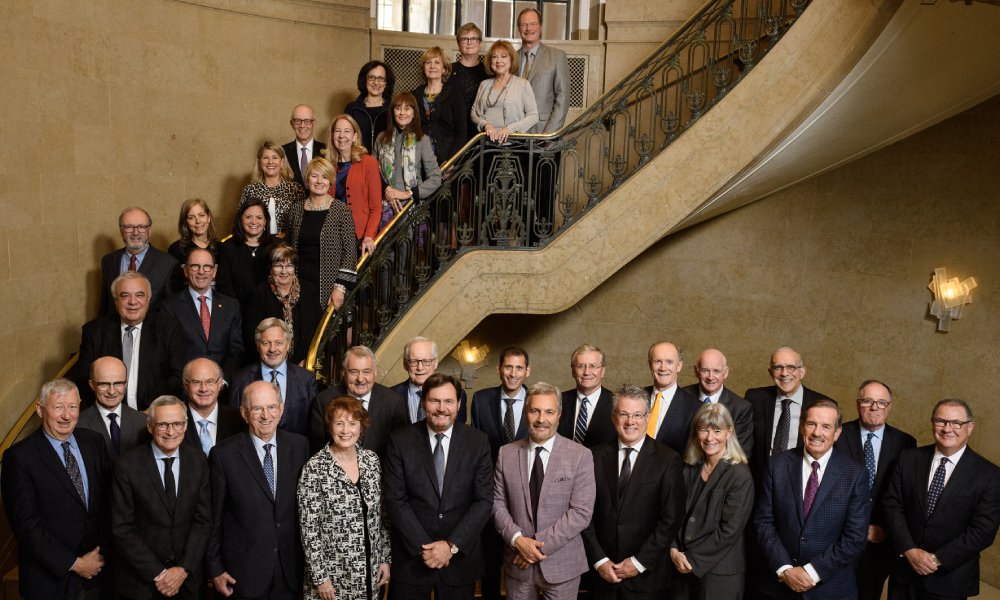
Council shares highlights of annual spring meeting ending on Apr. 9

A judicial conduct review panel constituted by the Canadian Judicial Council has decided not to refer the matter of Graeme Mitchell, justice of the Court of Queen’s Bench in Saskatchewan in Regina, to an inquiry committee.
Christopher Hinkson, chief justice of the Supreme Court of British Columbia and chairperson of the judicial conduct committee, ordered that the matter be closed with no further action, said the council’s press release dated Apr. 13.
Last year, the council received five complaints regarding an incident when, after deciding a matter but before finishing his reasons for judgment, Justice Mitchell visited an Indigenous protest camp on the grounds of the Saskatchewan Legislative Building, posed for pictures and accepted ceremonial gifts.
The council constituted a review panel composed of chairperson Shane Perlmutter, associate chief justice of the Court of Queen’s Bench of Manitoba; Tracey DeWare, chief justice of the Court of Queen’s Bench of New Brunswick; Eva Petras, associate chief justice of the Superior Court of Quebec; Jennifer Duncan, justice of the Supreme Court of British Columbia; and Andre Dulude.
The review panel, holding that the matter was not serious enough to warrant Mitchell’s removal, favourably noted that Mitchell had made efforts to educate himself and to better understand the importance of being and appearing impartial in his decisions and decision-making, after the matter was referred to the panel.
The review panel accepted Mitchell’s sincere expression of remorse, his claim that he would never put himself in a similar situation in the future and the statement of Martel Popescul, chief justice of the Court of Queen’s Bench in Saskatchewan, that Mitchell sincerely understood the impact of judicial independence on the public’s confidence in the judiciary.
However, the review panel also found that Mitchell’s actions were inconsistent with the ethical obligations of judges, specifically the obligation to remain and appear neutral.
“While the Review Panel indicated that judicial reconciliation with Indigenous people is and will remain an important goal of the judiciary, it can only be pursued and achieved while respecting judicial independence and impartiality,” said the press release.
All 41 of the council’s members met via videoconference for its three-day annual meeting, ending on Apr. 9, and talked about issues and initiatives for improving the administration of justice.
“While the pandemic has had a marked impact on all sectors of society, the Council has continued to explore ways to be innovative, creative, and to adapt to new challenges,” said Richard Wagner, Canada’s chief justice and the council’s chairperson, in the press release dated Apr. 9.
The council’s members discussed judicial education programming, the approval of handbooks for self-represented litigants, the review of 551 complaint-related matters from Apr. 1, 2020 to Mar. 10, the plans to publish the revised Ethical Principles for Judges in the near future and other initiatives relating to access to justice, the security of court information and the technology used by courts.
The council heard from David Lametti, federal justice minister and attorney general. The council’s members aired ideas that may potentially inform future proposals to Lametti and to the commissioner for federal judicial affairs for the improvement of the council’s governance matters.